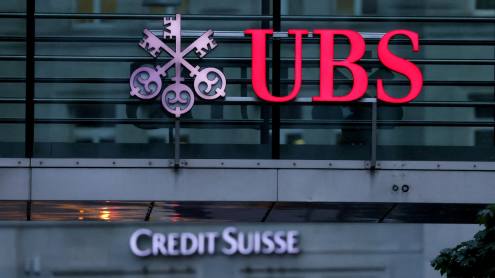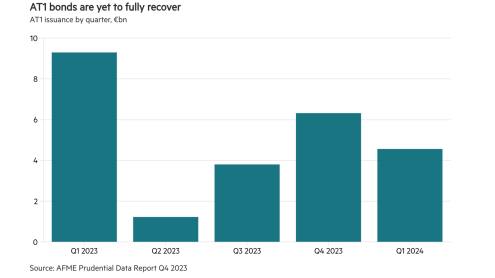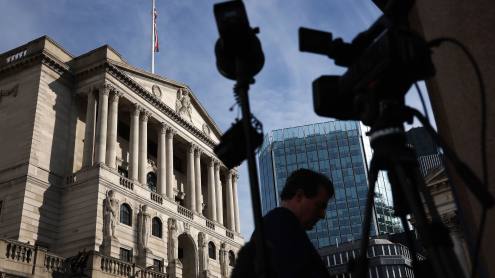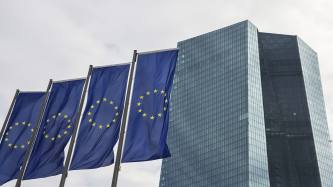Europe’s first Islamic retail bank is expected to be established in the UK early this year. Pending approval from the UK’s Financial Services Authority, a new institution – to be called the Islamic Bank of Britain (IBB) – plans to provide a full range of retail banking products and services on a wholly Shari’ah-compliant basis, primarily to the UK’s 1.8 million Muslims.
The new venture – sponsored by a group of prominent Gulf and UK investors, including major Islamic financial institutions – hopes to meet the demand for Islamic banking products not only in the UK but throughout Europe. Once a UK licence is obtained it can provide an effective banking passport across Europe, where research puts the Muslim population, outside of Turkey and the UK, at an estimated 13.8 million. France and Germany, with Muslim populations of 5.9 million and 3 million respectively, provide ready markets for Islamic financial services.
Early decision expected
The licence application for the bank was submitted to the FSA in October and Michael Hanlon, an experienced international banker formerly with Barclays and Austria’s RZB and the managing director of the venture, is confident that it could be granted even as early as January.
Mr Hanlon said that, in discussions with the FSA, “there have been no showstoppers; they are obliged to give a decision within six months and we expect one earlier”. His objective is to open at the end of March.
The UK authorities’ attitude towards Islamic banking has changed in recent years. A decade ago, a number of Islamic finance houses operated in the UK but none achieved bank status. Although there are clear differences between Islamic and traditional banking, in recent speeches the FSA’s Michael Foot has expressed a willingness to be more open and to find accommodation between the two systems. There appears to be not only a greater desire to provide Islamic financial services but also the will to find the appropriate legal framework to make these new services work alongside traditional products.
Mohammed Paracha, an associate at UK law firm Norton Rose, is a member of the Bank of England working group. This has joined with many government departments in seeking to remove various legal and regulatory barriers that prevent viable Islamic mortgages from being developed. In July 2003, UK banks HSBC and United National Bank introduced Islamic mortgage products and more are expected to follow.
Mr Paracha says: “Muslims place great importance on arranging their financial affairs in accordance with their Islamic beliefs. The successful launch of the new bank will reinforce London as being the international financial centre for innovating product development. The UK will be the first western country to cater specifically for the financial needs of Muslims.”
IPO on the cards
The new bank, once approved, will begin operations with initial paid-up capital of Ł14m ($24m) but, subject to FSA consent, will increase its capital shortly thereafter to at least Ł50m, through a UK initial public offering (IPO) and private placement in the Arab world and Asia. There is no dominant investor group but the project has been driven by a number of experienced Gulf and UK bankers. The existing structure is led by chairman Abdul Rahman Abdul Malik, the CEO of Abu Dhabi Islamic Bank, and includes Adnan Ahmed Youssef and Abdul Magid Breish, both from Arab Banking Corporation, and Michael Carter, who also has extensive banking experience in the Gulf.
The bank plans a small, high-tech network of branches in London and other major cities, running the Misys Equation banking package with a special Islamic module. Eight branches are planned initially and Mr Hanlon says that the headquarters are expected to be in Birmingham. The bank will provide a full range of accounts, cards and services, including a car financing facility and consumer finance products. “UK Muslims have not used banking facilities to the extent that they could, preferring to work in cash,” Mr Hanlon says.
The proposed bank hopes to achieve a 15% share of the UK Muslim market. While this new institution has its roots in the Gulf, the bulk of UK Muslims are from the subcontinent, with Pakistanis, Bangladeshis and Indians representing 41%, 13% and 11% respectively. Given that the Muslim community has been relatively underserved, the Islamic Bank of Britain represents an important step forward in serving this market – both in the UK and western Europe.











